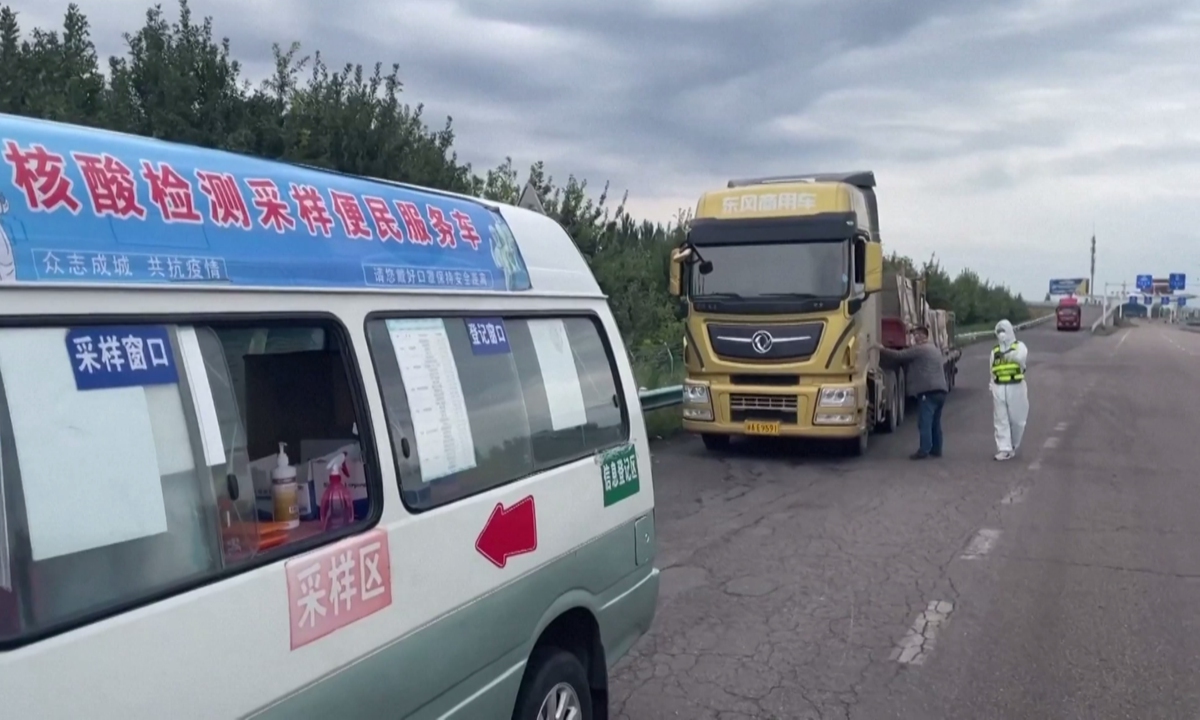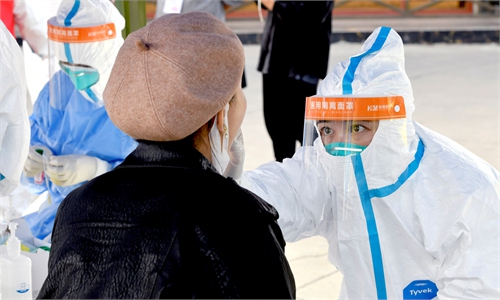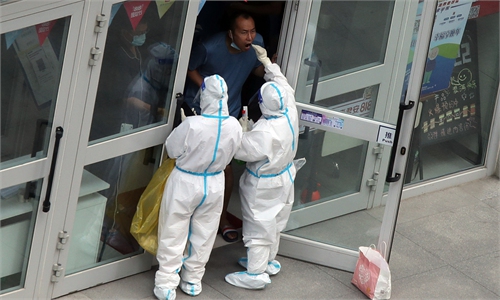Xinjiang strives for smooth logistics, stable industrial chains in fight against COVID

A nucleic acid detection vehicle is seen on a highway in the Ili Kazak Autonomous Prefecture, Northwest China's Xinjiang Uygur Autonomous Region on August 13, 2022. Photo: VCG
With total COVID-19 cases having surpassed 2,000, Northwest China's Xinjiang region has ramped up efforts to both thoroughly screen for infections and ensure smooth logistics and stable industrial and supply chains to minimize the impact of this round of COVID-19 resurgence on economic development.
The region announced plans to closely monitor the industrial and supply chains of 565 enterprises, and help them ensure normal operations during the epidemic, media reported on Tuesday.
On Tuesday, the Xinjiang Uygur Autonomous Region reported 12 confirmed cases and 248 asymptomatic ones that were newly added the day before. Starting from July 30, the flare-up in the region has been caused by the Omicron BA.5.2 variant, which has a stronger immune escape ability, stronger transmission capacity and faster transmission speed, and the variant has spread to 31 counties, cities and districts in 13 prefectures and cities due to its fast transmission speed.
Experts told the Global Times that this round of resurgence was caused by multiple transmission routes with many cluster infections. The current mission for the region is to screen for infections and cut further transmission. Although confirmed cases are increasing, the region has accumulated rich experience in dealing with the epidemic and will get it under control, experts said.
On Monday, the region held a meeting on ensuring logistics and the stability of industrial and supply chains, with senior regional officials also attending. Ma Xingrui, Party chief of Xinjiang, pointed out that the region should fully and scientifically implement prevention measures, thoroughly screen for infections and effectively treat confirmed cases to realize the goal of dynamic zero, local news outlet ts.cn reported on Tuesday.
Ma also stressed at the Monday meeting the importance of stabilizing industrial and supply chains, which are the basis of ensuring people's livelihoods, employment and the market. In addition, local governments should also ensure agricultural production.
Parts of Urumqi, the regional capital, and some counties and prefectures in the region where confirmed cases have been spotted have been put under static management. A resident in Urumqi surnamed Zhu told the Global Times that they were very calm against this resurgence, and the residential community has also arranged deliveries of daily necessities.
"There is nothing to worry about. We only hope to put the epidemic under control and bring our lives back to normal," said Zhu.
While fighting the epidemic, Ma also stressed that local governments in the region should pay attention to people's livelihoods, freight transport and the operation of industries. No place should arbitrarily shut down transport facilities or add control measures. Places that have prevented farmers from going into the fields or stopped transportation or put freight drivers from low-risk areas into quarantine should immediately correct their wrongdoings.
Sources from the Xinjiang regional government told the Global Times that the meeting was held as some places were found to be preventing freight drivers from coming in to avoid possible infections, which affected logistics. The region has also made efforts to ensure logistics via highways, railways and flights.
To cut possible transmission, many factories in the Xinjiang region, including automobile plants, have adopted closed loop management, with strict prevention measures implemented.


